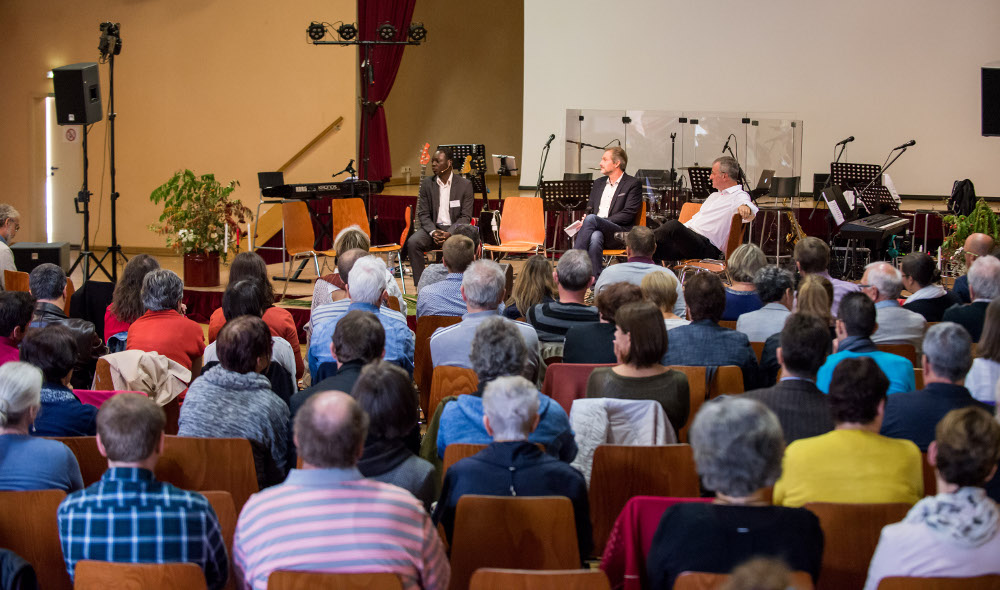Mission FPC

In his letter to the Ephesians, Paul teaches us that “from before the foundation of the world,” God formed the “kind purpose” that He initiated in history “according to His will.” This was to halt and even reverse the rebellion of humanity and to submit everything to Christ. But His plan is also to reconcile with Himself, through this same Christ, a people who will celebrate “the glory of His grace.” And it is no surprise that this Christ is indeed the Head, and the Church is His body[1]!
Abraham will be the father of a particular people, Israel. God is going to free this people from slavery in Egypt and establish them in a land “flowing with milk and honey[2]”. He makes a covenant with them: “I will make my dwelling among you […] And I will walk among you and will be your God, and you shall be my people.[3]” This particular expression is found all throughout the Old Testament. Jeremiah will speak of it as an “everlasting” covenant in its content[4], but “new” in the sense of now being interiorized: “I will put my law within them, and I will write it on their hearts. And I will be their God, and they shall be my people.[5]” This presupposes a change of heart, a new heart, a heart of flesh instead of a heart of stone. According to Ezekiel, this transformation, brought about through the Holy Spirit, is also accompanied by that same expression “you shall be my people, and I will be your God.[6]” So it’s not surprising to see Paul take up the same formula and apply it to the Church in his letter to the Corinthians[7]. We’ll even find it one more time, in the last scene in the book of Revelation, still applied to the Church, the Bride and the celestial Jerusalem. A loud voice coming from heaven describes her as “the tabernacle of God with man. He will dwell with them, and they will be His people, and God Himself will be with them as their God.[8]”
Christ is the One who fully accomplishes this project. He is the foundation, the cornerstone, the measure of all things. It is from this stone that the holy temple, another image of the Church, God’s community, will be built[9]. He gave His life so that the sin of His people might be forgiven, that they would be reconciled with the Father, a people for His own possession, among whom God would dwell and with whom He would walk. This is the work of Christ; He is building His Church … and it’s a magnificent work … and we’re still waiting for its full manifestation[10].
Even though the cornerstone is unique, the Son is not alone in the outworking of this project. Believers come to salvation through the Holy Spirit, throughout history. They become disciples of Christ, and they come to understand God’s project: “Go therefore and make disciples of all nations, baptizing them in the name of the Father and of the Son and of the Holy Spirit, teaching them to observe all that I have commanded you.[11]” This teaching was at first entrusted to the apostles. By their writings, which became our New Testament, they are the foundation of the life of the Church[12]. Missionary work consists of making known this good news of salvation in Christ, and His teaching. Each individual converted to Christ becomes a part of the Church and then learns that the project for his own life must be integrated into Christ’s project. Believers, through their ministry, become in a sense “co-workers” with Christ.
Not really! The Church does not exist just for itself, but first and foremost for God. It is first of all a community of worshipers. This aspect is essential. And after love for God comes love for the brethren, expressed in solidarity and kindness towards one another. But it’s also a love for our neighbor, whoever that might be. The Church carries the good news of salvation in Christ to the world. And the Church alone can do this and must do this! But she must also equip her members to live “as Christians” in the world and to live out the “cultural mandate” to which all humans are called, that is, to multiply and to care for the earth[13].
In the Old Testament, everything converges toward Israel, toward Jerusalem, the center for worship. In the New Testament, the movement is reversed. This is clearly seen in Luke’s two volumes. In his gospel, from chapter 10 onwards, Luke gives much attention to Jesus’ going up to Jerusalem. In Acts, the Gospel expands outward from Jerusalem, to Judea, into Samaria, and to the ends of the earth. It’s still the case today. In contrast to the Old Testament, where worship was centralized and tightly reglemented, the Church of the New Testament has an extraordinary capacity for adaptation. She can live and thrive in all times and in all places. She is truly universal, in time and in space. No kingdom, no multinational company, has achieved that! What a testimony to the wisdom and greatness of our God!
[1] See Ephesians 1.
[2] Exodus 3:8.
[3] Leviticus 26:11-12.
[4] Jeremiah 32:40.
[5] Jeremiah 31:33.
[6] Ezekiel 36:26-28.
[7] 2 Corinthians 6:16.
[8] Revelation 21:3.
[9] Ephesians 2:20-21.
[10] Matthew 16:18; Ephesians 5:25-27.
[11] Matthew 28:19-20.
[12] Ephesians 2:20.
[13] Genesis 1:28; 2:15.
Mission FPC

Leave a Reply